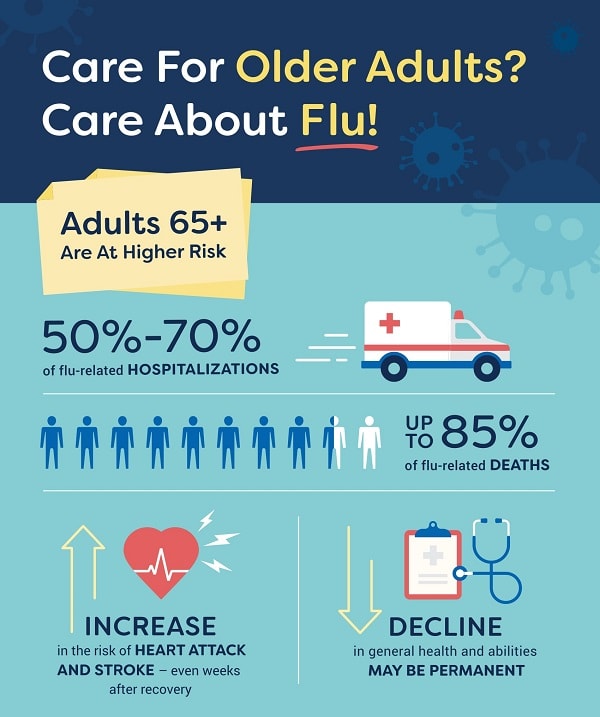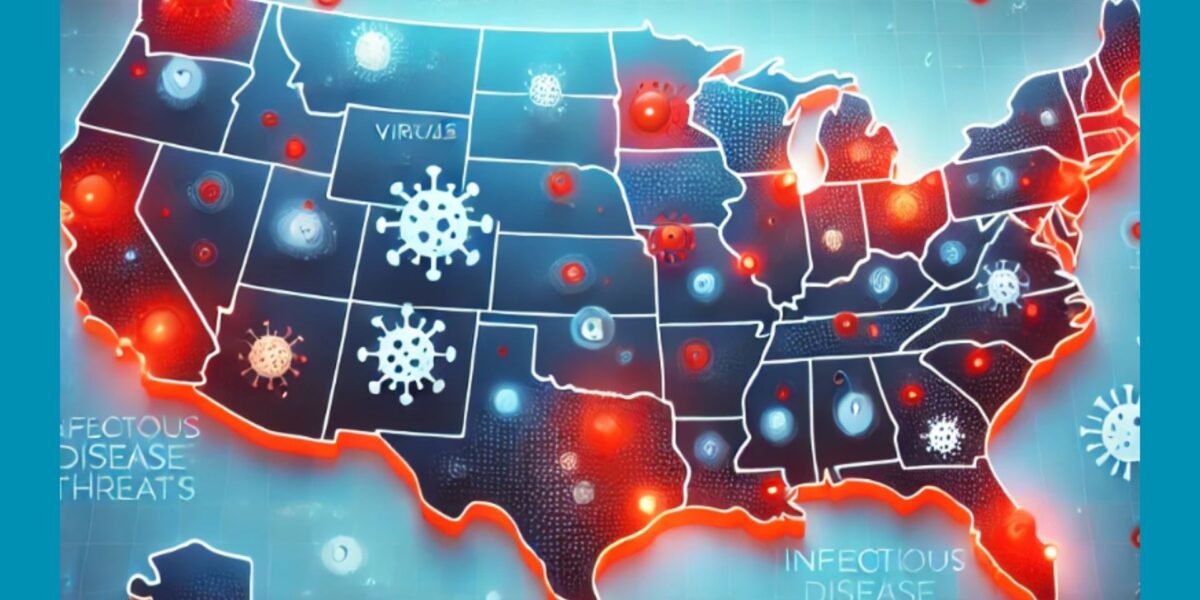
To highlight the importance of annual influenza (flu) vaccination, the National Foundation for Infectious Diseases (NFID) is hosting a 2017 National Influenza Vaccination Week (NIVW) blog relay, featuring a daily guest post from an immunization champion/organization.

Special thanks to John Merrill-Steskal, MD, a family physician at Kittitas Valley Healthcare in Ellensburg, WA, for this guest post on the important role that all healthcare professionals play in protecting older adults against influenza. Dr. Merrill-Steskal is an active member and fellow of the American Academy of Family Physicians (AAFP), and recently completed a one-year AAFP-sponsored Vaccine Science Fellowship.
As a family physician, influenza (flu) season is a busy time. Whether it is school-aged children who catch the flu from their classmates or older adults who come into contact with the virus during their daily routines, my office is full of patients who are feeling under the weather. Unfortunately, every year I see patients – especially older adults – who get hospitalized due to influenza-related complications. In fact, adults age 65 years and older account for the majority of flu-related hospitalizations and most of flu-related deaths.
Older adults experience an elevated risk of complications from influenza due to a gradual deterioration of the immune system, known as immunosenescence. I explain this concept to my patients by sharing that as they age or when they have medical problems, like diabetes, heart disease, or chronic obstructive pulmonary disease (COPD), which are more common in older adults, their white blood cells become less “peppy” and become more “sluggish”, which makes it harder for them to fight flu viruses. This helps patients understand why they are at increased risk for hospitalization or death from influenza, and in turn, why I recommend annual influenza vaccination to all patients six months and older, but especially older adults and those with specific health conditions. For adults age 65 years and older, there are now two safe and effective vaccines (high dose and adjuvanted) that are specifically-designed to overcome the effects of an aging immune system.
Personalizing my message and explaining to each patient why they should receive a flu vaccine helps increase the chance that they will say yes to getting vaccinated. 
Nationally, only 65% of this vulnerable older adult population gets vaccinated against flu. The notion that one third of older adults are unprotected is striking—and largely preventable. As physicians, we can make a significant impact on this number by making a focused effort to stress the importance of getting an annual flu shot. Research has shown that a strong recommendation from a physician is the single most important factor in a patient’s decision to receive the influenza vaccine. “Strong” does not mean forceful or paternalistic, rather, a strong recommendation implies such attributes as sincerity, caring, and trust, combined with a dose of confidence.
During National Influenza Vaccination Week (NIVW), I encourage family physicians and other HCPs to utilize their trusted relationships with patients to give a “strong” influenza vaccine recommendation. The Centers for Disease Control and Prevention (CDC) currently recommends that all individuals age 6 months and older should receive a routine annual influenza vaccination with a licensed age-appropriate vaccine. Six months and older–that’s almost everyone! As family physicians, pediatricians, internists, and specialists, we all have an important role to play in encouraging annual influenza vaccination. Your help in encouraging patients to get vaccinated this flu season is critical.
NIVW is a great time for HCPs to brush up on the latest information about influenza and vaccine options available for older adults. The Care For Older Adults? Care About Flu! Toolkit is a free resource from NFID that includes a fact sheet, infographic, 30-second public service announcement video, and other resources to help HCPs initiate discussions with their older adult patients about the importance of annual flu prevention.
Many of the older adults I see in my practice have been patients of mine for many years and I don’t want to lose them to a preventable disease like flu. I hope that you and your colleagues will join me in helping to protect all patients, by strongly encouraging annual influenza vaccination. Regardless of the reason for their visit, take a moment to connect with the patient in front of you, look them in the eyes, and tell them you want very much to keep them healthy. Give a strong recommendation to get the influenza vaccine!
Be sure to check NFID News each day during #NIVW to view guest blog posts, including the upcoming post about the importance of preventing flu on US college campuses.
To join the conversation, follow NFID on Twitter, using the hashtags #NIVW and #FightFlu, like NFID on Facebook, follow NFID on Instagram, join the NFID Linkedin Group, and subscribe to NFID Updates.
Related Posts

News Round-Up: Infectious Disease Threats
According to NFID website poll, there are several worrisome infectious disease threats. Read recent news on topics of greatest concern, including avian influenza (bird flu), measles, and respiratory syncytial virus (RSV) …

Vaccines and Heart Health: A Vital Connection
Heart disease can increase the risk of serious or fatal complications from respiratory diseases including COVID-19, flu, and RSV

Harnessing the Power of Local Data
NFID dashboard aims to empower stakeholders with hyperlocal data to increase US adult respiratory vaccine uptake
